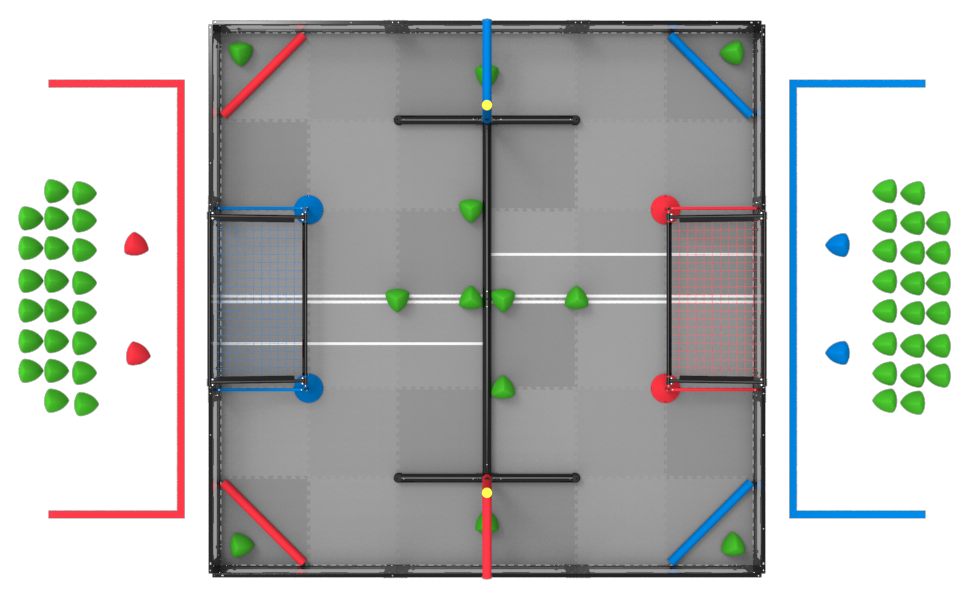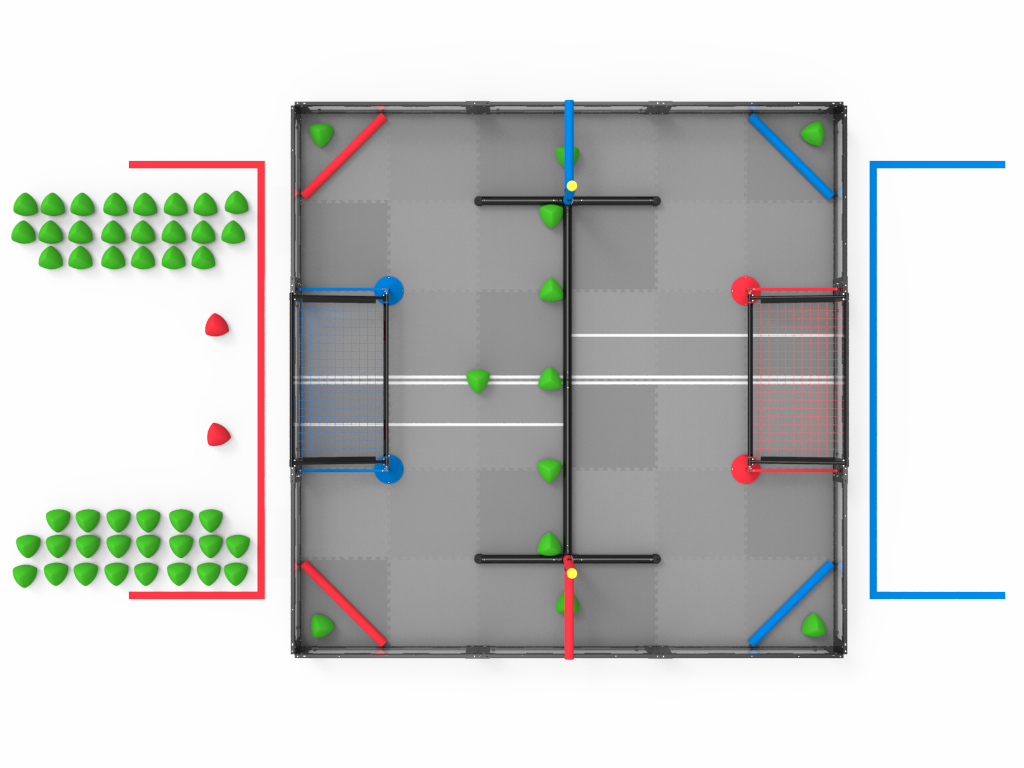The school’s VEX robotics team 95071X placed first out of 164 teams from across the world in the U.S. Open Nationals tournament headed in Council Bluffs, Iowa, on March 14-16. The team also won the Excellence Award, the highest judging award attainable.
A week prior, they competed at the Tracy California Regional Championship, losing in the quarterfinals but winning the Excellence Award; this performance qualified them for the World Championship on April 25-27, to be held in Dallas.
Team 95071X consists of sophomores Adit Sharma, Richard Lee and Bryan Zhao, junior Luke Zhang and seniors Kai Otsuka and William Cao. It is one of six VEX teams on campus.
In preparation for Worlds, the team’s members are working on updating their Engineering Design Notebook to include tournament analysis from nationals, fine-tuning their driver skills, programming their autonomous skills routine and testing other prototype robot builds.
“So far, this season has surpassed everyone’s expectations,” said Lee, the robot’s driver. “We have strong momentum after winning the Excellence award states and Tournament Champions at nationals, and we’re looking forward to mimicking this performance at worlds.”
The 6-member team competes in the VEX Robotics Competition (VRC), an organizing league that holds robotics competitions worldwide. VRC releases a brand new game every April, which dictates what challenges teams have to build their robots according to the season.
This year’s game is “Over Under,” in which robots in teams of two are tasked with scoring green, acorn-shaped balls into goals and climbing onto a pole at the end of the match. During tournaments, all teams also have the opportunity to play in the Drivers Skills Challenge, in which robots compete individually to score as many points as possible in the skills layout.

Courtesy of REC Foundation
Field layout for matchplay consisting of the blue and red alliance having 22 match loads and 2 respective preload acorn-shaped balls placed touching the robots before the autonomous period.

Courtesy of REC Foundation
Field layout for driver and autonomous skills consisting of 44 match loads and 2 respective preload acorn-shaped balls.
According to Otsuka, the coach of the drive team, the team has been continuously updating its design throughout the season to be more agile when moving around the field and picking up green, acorn-shaped balls.
While the team’s initial build swept the Central Valley Regional tournament held in Ceres, Calif., on Dec. 9 in an alliance with team 77787B — which qualified them for the U.S. Open — members were dissatisfied with their robot’s overall heavy weight and speed, describing its performance as clunky. Following the regional, the team completely redesigned their robot toward a lighter design, providing them with a more maneuverable robot that would be able to quickly possess the game pieces, particularly the green, acorn-shaped balls.
“Our original robot was more for skills,” Otsuka said. “We wanted to be better at match play, so we tried to decrease the weight of the robot and we ended up dropping from 18 pounds to 16.5 pounds.”
Otsuka mentioned how decreasing the weight of the robot allowed them to significantly increase their speed on the field. This allowed them to score more at the regional championships, despite last-minute issues with tuning and struggles passing the 18-inch by 18-inch by 18-inch volume size inspection.
Quick turnarounds have also been a strength for the team this season, Otsuka said. While the team only had three days to prepare for the U.S. Open Nationals after receiving news of their qualification, they took full advantage of the little time they had for driver practice and refining in-game strategy.
At nationals, the team’s ability to adapt their robot to different challenges continued to give them an edge over other teams.
On the first day of the U.S. Open, they had the opportunity to attempt the Driver Skills Challenge. The team ended up placing second at the event with an autonomous score of 183 and a driver score of 226 out of a maximum total of 250 points.
The team later went undefeated during their qualification matches. Otsuka attributes this success to their ability to properly coordinate the correct decisions with their alliance during the game, as their strategy for the Driver Skills Challenge and real matches differed significantly. They earned first place in their division after the qualifying rounds, allowing them to have the first pick in choosing their alliance member for the elimination rounds.
“We ended up picking the driver skills winner of the event [Team 2029C],” Otsuka said. “We were super strong together and won the entire competition.”
Otsuka recognized the team’s togetherness as an instrumental factor throughout the entire tournament.
“We’re only six people, so we all know each other really well and have a strong bond,” Otsuka said. “It really makes every member feel accountable to the performance of the team.”
Otsuka contrasts this to previous years where each team was selected randomly or just people wanting to be with their friends. This year, the 95071X team was made to be the collection of the best members in the club to create a “super” team. Otsuka mentioned that each person brings a specific strength to the team and over time they were able to put everything together.
Otsuka hopes that the team can carry their strong performance to Worlds in April.
“As long as we don’t go too ambitious on the robot [remaking big subsystems] and we really refine what we have right now, we will do well at worlds,” Otsuka said.
The school’s six VEX robotics teams:
- 95071H
- Aidan Liu (9), Debesh Das Sharma (9), Eric Liang (9), Meera Minocha (9), William Deklich (9)
- 95071V
- Advika Mukherjee (10), Eungyo (Lia) Go (10), Nicole Hao (10), Ruiyan Zhu (10), Rebecca Chen (9), Vivian Lei (10)
- 95071W
- Andrew Zeng (10), Atish Chatterjee (11), Ayan Rai (10), Mihir Shaik (11), Naahur Sajwan (11), Yuvaan Parwaney (9)
- 95071X
- Adit Sharma (10), Bryan Zhao (10), Kai Otsuka (12), Luke Zhang (11), Richard Lee (10), William Cao (12)
- 95071Y
- Alex Ge (10), Ishin Lidman (9), Misha Khairom (9), Nikhil Prabakaran (9), Sethan Sun (9)
- 95071Z
- Gonzalo Fernandez da Ponte (10), Jasmine Lee (10), Jerry Chang (10), Katherine Zeng (10), Mridhula Vudali (10), Vedant Padhi (10)


























